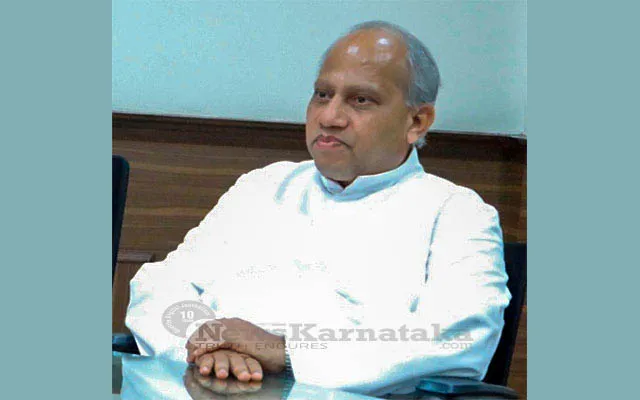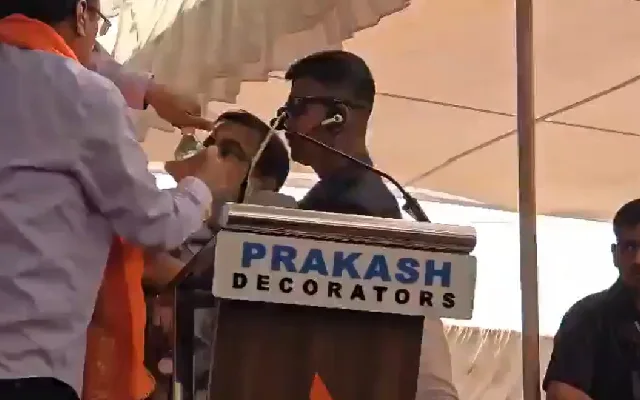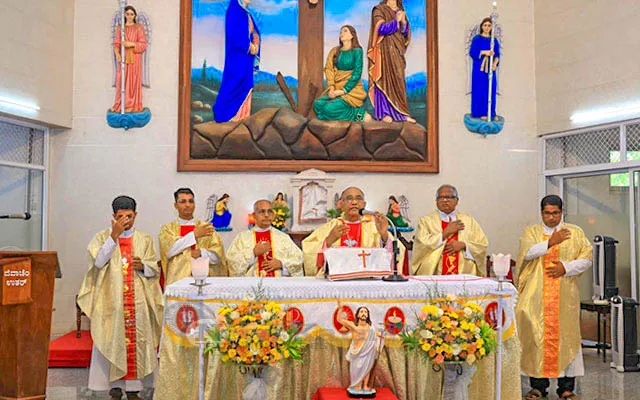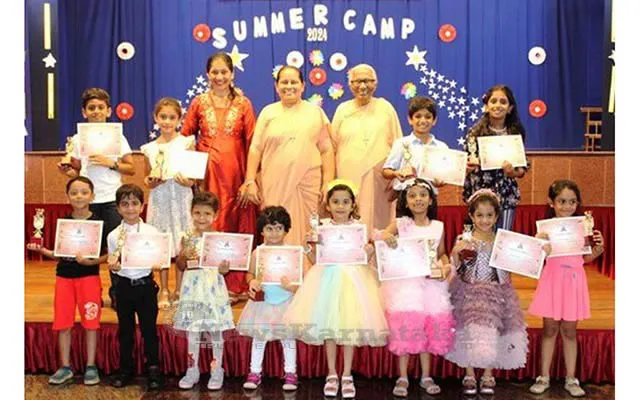 The controversial Karnataka Prevention and Eradication of Inhuman Evil Practices and Black Magic Bill, 2017 is finally a reality. It was passed in the ongoing assembly session in Belagavi on Thursday 16th Novmeberwith very little opposition. The process was initiated by Karnataka’s Chief Minister Siddaramaiah after Maharashtra passed The Black Magic Prevention and Prohibition of Exploiting Practices Bill in December 2013. The, the Karnataka Cabinet cleared the Karnataka Prevention and Eradication of Inhuman Evil Practices and Black Magic Bill in September 2017 and on November 14, H Anjaneya, the Minister for Social Welfare, tabled this Bill in the assembly.
The controversial Karnataka Prevention and Eradication of Inhuman Evil Practices and Black Magic Bill, 2017 is finally a reality. It was passed in the ongoing assembly session in Belagavi on Thursday 16th Novmeberwith very little opposition. The process was initiated by Karnataka’s Chief Minister Siddaramaiah after Maharashtra passed The Black Magic Prevention and Prohibition of Exploiting Practices Bill in December 2013. The, the Karnataka Cabinet cleared the Karnataka Prevention and Eradication of Inhuman Evil Practices and Black Magic Bill in September 2017 and on November 14, H Anjaneya, the Minister for Social Welfare, tabled this Bill in the assembly.
The bill is meant to prevent and eradicate “inhuman evil practices”. The legislation was earlier proposed as The Evil, Inhuman and Superstitious Practices Prevention Bill. After omitting the word superstitious, it is now titled The Karnataka Prevention and Eradication of Inhuman Evil Practices and Black Magic Bill, 2017.
The Times of India has reported that the bill, which envisages the creation of a Karnataka Anti-Superstition Authority, has listed practices such as siddubhukti, maata, okuli, bettaleseve, panktibheda and made snana as criminal offences. Also, future predictions that result in harm caused such as stigmatization of a person or severe financial loss have also been penalized as non-cognizable offences.
The Karnataka Prevention of Superstitious Practices Bill, 2013 was drafted by the National Law School of India University (NLSIU) at the insistence of Karnataka Chief Minister Siddaramaiah “We have tried to define superstitious practices as those that cause grave physical or mental harm, financial or sexual exploitation or offends human dignity,” the Times of India has quoted S Japhet, professor and director of the Centre for the Study of Social Exclusion and Inclusive Policy (CSSEIP) at National Law School of India University (NLSIU) as saying. “The draft has been prepared after rigorous research and several rounds of consultations with eminent thinkers and legal experts within and outside Karnataka for about a month,” Japhet said.
What is banned under the bill
According to the Hindu daily, the following practices are banned under the bill’s provisions:
•Facilitating any person or persons roll over (uruliseve) on the leaves of left over food by other persons in any public or religious places or similar practices that violate human dignity, also known as made snana
•Coercing any person to perform fire-walk at the time of jatras/religious festivals, causing physical injury
•Practice of piercing from rods from one side of jaw to another side of the jaw and including the tongue (baibiga practice)
•Pelting stones in the name of banamathi, mata-mantra and mata-mantra on the residential houses during night or day
•Prohibiting and preventing a person from taking medical treatment in the case of dog, snake, or scorpion bite, and instead giving him ‘treatment’ like mata-mantra, gandra-dora of such other things
•Forcing person to carry on evil practices such as killing of an animal by biting its neck (gaavu), that cause harm to public health nuisance
•Performing any inhuman, evil act and black magic in search of precious things, bounty and hidden treasure in the name of banamathi, mata-mantra, assaulting any person, parading naked or put a ban on his daily activities or instigate advise or encourage committing such inhuman acts
•To create an impression by declaring that a power inapprehensible by senses has influenced one’s body or that a person has possessed such power thereby create fear in the minds of people or to threaten others of evil consequences for not following the advice of such person or deceive defraud and deter them
•Under the pretext of expelling the ghost, assaulting by tying the person with rope or chain, beating by stick or whip to make the person drink footwear soaked water, causing pain by way of touching heated object to organs or body of a person, forcing a person to perform sexual act in the open, practice inhuman acts, putting urine or human excreta forcibly in the mouth of a person or practice any such acts
•Creating panic in the minds of public in general by way of invoking ghost or mantras
•Preventing person taking medical treatment and diverting him or her to practice inhuman evil and aghory acts
•Claiming to perform surgery by fingers or claiming to change the sex of a foetus in womb of a woman
•Persuading, propagating or facilitating rituals that involve self-inflicted injuries such as hanging from a hook: inserted into the body (sidi) or pulling a chariot by hook inserted into the body
•Persuading, propagating or facilitating rituals involving harm inflicted on children in the name of curing them, such as throwing them on thorns or from heights and branding them with heated objects
•Practising evil practices against women by forcing isolation, prohibiting re-entry into the village or facilitating segregation of menstruating, or pregnant women; and subjecting women to inhuman and humiliating practices such as parading them naked in the name of worship, or “betthaleseve”
What is not banned
The daily also states that the following practices are not banned:
•The form of the worship such as Pradakshina, Yatra, Parikrama performed at religious places
•Harikata, Keerthana, Pravachana, Bhajana, teaching of ancient and traditional learning and arts, practice, propagation and circulation
•Miracles of the deceased saints propagation, publicity and circulation of the same and the propagation, publicity and distribution of literature about miracles of the religious preachers which do not cause physical injury
•Performance of prayers, upasana and religious rituals at home, temple, darghas, gurdwara, pagoda, church, and other religious places which do not cause physical injury
•All religious celebrations, festivals, prayers, procession and other act relating other rituals
•Piercing of ears and nose of children in accordance with rituals and performance of religious ritual such as Kesh Lochan by the Jains
•Advice in regard to vaastushasthra, and advice by jyothishya and other astrologers
Little opposition to the bill
The Bill mostly had a smooth sailing. The entire Opposition welcomed the Bill and suggested that more attention should be given to creating awareness about prevailing superstitions in various lower caste communities.
Leader of the Opposition JagadishShettar, C.T. Ravi, S. Suresh Kumar, GovindKarjol (all BJP); Y.S.V. Datta, H.D. Kumaraswamy, H.D. Revanna (all JD-S) spoke on the Bill and offered suggestions. JD(S) leader HD Revanna suggested that the government bring up the bill only after the 2018 Assembly elections.
During the debate for the passage of the bill, there were demands and counter demands for inclusion and exclusion from the bill:
•JD(S) leader YSV Datta said that the practice of Mahamatsabhisheka at Sravanabelagola, where litres of milk are poured on the idol of Bahubali, must also be banned.
•MLA BR Patil demanded that astrology and Vaastu also be included in the ambit of the bill, Leader of Opposition of the Assembly said that the law should include methods to create awareness among people about superstitious practices.
•JD(S) President HD Kumaraswamy requested that the government ban the practice of conducting poojas in government offices.
The Debate that preceded the passing of the bill also saw some interesting exchanges.
CT Ravi who questioned the need to ban practices of the Hindu Community specifically he was referring to the practice of Made Snana. Made Snana is a ritual where devotees, who belong to the backward castes, roll on plantain leaves, carrying leftovers of meals eaten by Brahmins. This practice was stayed by the Supreme Court in 2014 and devotees are now offering rice to the deity at the temple. Ravi said it is best left to the people to decide if they want to practice it. “Why should it be banned. If people want to do it willingly, there is no harm. If someone is forced to do it, then the government can make it punishable,” CT Ravi said.
Why not Sunnat be banned? BJP leaders asked of a practice by the Muslim Community “Sunnat also causes hurt to children. Why is not superstitious?” asked VishveshwaraHegde Kageri. CT Ravi also asked if halal meat can be called superstitious. “You are saying Muslim community hurt themselves during Moharram, then having halal meat should also be considered superstitious right?” But Higher Education Minister countered “the members of the Muslim community resorted to inflicting pain on themselves to mourn the killing of Hazrat Imam Hassan, in the great battle of Hussein in the 10th century”. Not one to let go CT Ravi asked “How can this practice go on for so many centuries?”
Chief Minister Siddaramaiah was in a jocular mood when he made a tongue in cheek statement that the Bill will bring luck to the Congress. However his attempt at light heartedness back fired when several members of the opposition brought up the issue of reports stating that the CM had changed his car because a crow had sat on it. “My decision to change my car was not at all related to a crow perching on it,” the CM replied putting an end to the unlucky exchange.
After the discussion, Social Welfare Minister, H Anjaneya, said that some suggestions made at the Assembly would be included in the bill. The Bill was passed by voice vote.
Penalties for performing banned practices
According to the bill, a metropolitan magistrate or judicial magistrate of first class shall try offences punishable under the Act. The Bill proposes the appointment of vigilance officers to take steps to prevent such practices and monitor violation of the provisions of the Act. Any person who propagates, practices or causes to promote any inhuman, evil practices and black magic in violation of the rules, is liable for imprisonment not less than three months and a fine up to Rs 5,000 or both. According to the bill, consent of the victim shall not be used as a defense for offenses committed. The consent of the victim cannot be used as a defence for the list of offences committed by a person,” Law and Parliamentary Affairs Minister TB Jayachandra was quoted as saying by The News Minute. “It will be a cognisable and non-bailable offence.”
Its been reported that punishment for offenses under this bill will vary from two years to five years imprisonment or fine or both It proposes death sentence for human sacrifice in the name of black magic. The bill also seeks to penalize broadcast, propagation or promotion in any manner of superstitious practices.
Voices of Dissent
One India has reported that the rationalists remain unconvinced and that the bill does not serve its purpose. “The bill is already diluted and does not serve the purpose of curbing superstitious practices. Education and not legislation can stop such practices. Unless awareness is created, people won’t stop. Political parties have already been successful in delaying the bill and now it is to be seen what final shape it will take. We will urge for a better bill,” they have quoted Prof Narendra Nayak, a rationalist who was consulted by the Karnataka government for the bill as saying.
At another level, the Deccan Chronicle has reported that devotees of the Kukke Subrahmanya Temple, who want to continue the practice of Made Snana are upset. It has quoted Bhaskar Bendodi, President of the Rajya Adivasi BudakattuHitharakshanaVedike, as saying that the devotees would challenge the Bill in the Karnataka High Court.
The Bill will in all probability see a legal battle before it can actually come into practise.
















